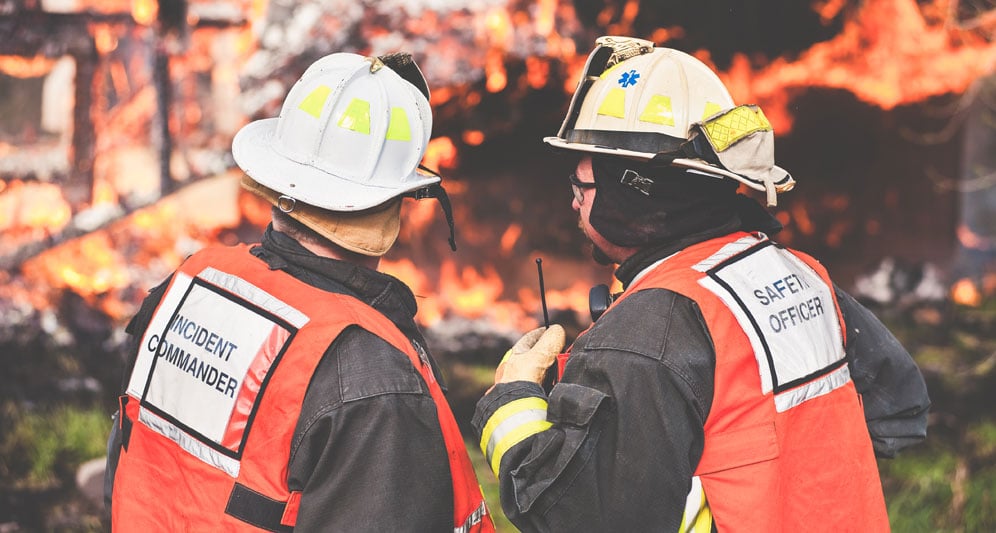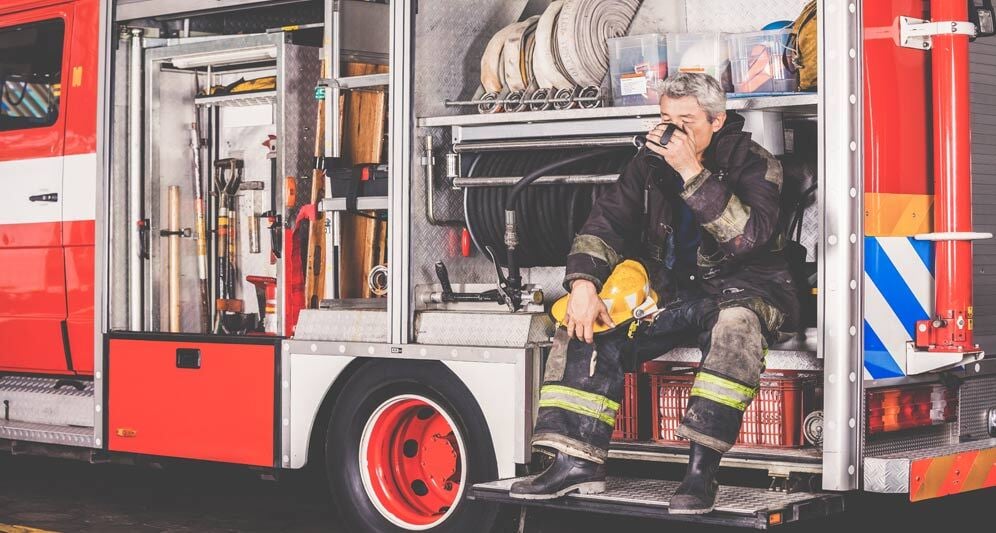Article highlights
- Department values and expectations.
- Model the culture you want to see.
When it comes to building a strong workplace culture, fire service has significant advantages. Work in the fire service naturally comes with a shared mission, rituals and traditions, and everyday experiences.
All of this provides the foundation for a strong, unique culture in the fire service. But individual departments still have to work to foster a healthy culture in every station and every section of the department.
Ethics in the fire service are not a given. Even with the strong overall culture in the fire service, individual departments can become toxic places to work if a healthy culture isn’t maintained.
Fire departments must create and sustain a culture that encourages integrity, open communication, trust, and ethical behavior.
As an article in FireRescue1 points out, “In many ways, a fire department’s culture directly affects how well it carries out its mission and delivers its services. A strong commitment to the department, its mission and its people is one mark of a high-performing department.”
Firefighters have to be able to trust one another with their very lives. This can’t happen without a workplace culture that values ethics and integrity.
Ethics in the fire service also matters to the citizens that a fire department serves. Civilians trust firefighters to keep them safe and responsibly use public money and resources.
Some examples of unethical behavior in the fire service are sexual misconduct, drug use, misuse of technology, theft, and cheating.
Unethical behavior breaks community trust and reflects badly not only on the department, but on the fire service as a whole.
Formal department values
Creating a culture of ethics in the fire service starts with building a foundation of integrity and ethics into your department’s core values.
No matter the size of your department, you should have a defined code of ethics or written core values. This will create a formal foundation for ethics by establishing guidelines for making decisions in tricky situations.
Department values should be a core thread that runs through everything your department does.
Core values help leaders make decisions about who to hire and promote. They inform policies and procedures and shape the way a department conducts training.

Creating written core values will help your department clearly articulate these values to every employee.
Gather a team of department leaders and team members to brainstorm what’s most important to your department. Then put those values down in writing and regularly repeat them in training and department meetings.
Informal team values and expectations
Of course, your department is already operating with certain values and expectations even if they’re not formalized.
As you work to create formalized core values, take your current department culture into account.
- What unspoken expectations exist in your department?
- Does your department have any traditions?
- What do your employees see as the mission of the department?
- How do they see themselves fitting into that mission?
Informal values can be powerful.
New recruits will quickly pick up and adapt to unspoken expectations and help enforce them on the next round of recruits. Therefore, it’s essential that your department’s informal values match up with the culture you want for your department.
Start with your own behavior
Culture change often starts on an individual level. To influence cultural change, you have to be willing to stand out and go against the flow.
Even if others aren’t doing it, treat everyone the same, act with integrity, follow the code of ethics, and adhere to proper policy and procedure.
Leading by example is of particular importance for department leaders, but it applies to employees at all levels.
As one writer put it in an article for Fire Engineering magazine:
This is the time, you – as a leader – and your core group can “walk the walk” and lead by example. … If your core values are passion, professionalism, and integrity, bleed those values each day. … The core values should have meaning to you, so it should be easy for you to come to work each day and be passionate about everything you do. Be the symbol of professionalism to those around you.
Don’t ignore bad behavior
Leading by example is not always going to be easy.
Creating a culture of ethics in the fire service requires that individuals act ethically. But it also means that firefighters can’t simply stand by if they witness a fellow team member doing something unsafe, immoral, or inappropriate.
Loyalty is essential in the fire service.
Firefighters must have each other’s backs. They commit to never leaving anyone behind. But the concept of loyalty to the team can go too far.
If firefighters value loyalty to their co-workers over other values or ethical considerations, they may be tempted to stay silent about bad behavior or even join in on covering up unethical activities.
If you cover up or excuse an incident, it may happen again and can ultimately have dire consequences. Unethical practices can hurt public trust. Unsafe practices may put people in danger.
A culture of ethics in the fire service encourages team members to intervene in such instances.
Firefighter Nation offers 8 Standing Orders for Ethical or Moral Dilemmas, which provide good steps to follow:
- Intervene aggressively if witnessing an illegal event.
- Aggressively seek assistance.
- Initiate all actions based upon observed behavior or facts presented—not on personal bias, assumptions, or rationalization.
- Ask probing questions.
- Retain control at all time.
- Stay alert, keep calm, think clearly, act decisively.
- Communicate immediately with your supervisor.
- Provide protection, direction, and order.
Work with officers as well as rank and file
A culture of ethics in the fire service often starts at the top. If commanders act immorally or turn a blind eye to bad behavior, other employees will follow suit. However, line staff are the ones who will live out and perpetuate the department culture in day-to-day operations.
Fire departments must incorporate ethics into training for both leadership and line-level team members. They should also consider ethics and integrity when making decisions about who to hire or promote.

Those being promoted to management and command positions should model department values.
Make culture a topic of conversation
Changing the culture of your department requires getting buy-in from every staff member.
The best way to do this is to be as transparent and open as possible about the process. Trying to force cultural change on employees simply won’t work.
Don’t try to start from scratch or scrap all existing informal department traditions. The idea is to strengthen what’s good and gently redirect unwritten expectations that may need to change.
As your department works to create a culture of ethics, gather employees from different levels of the organization to dialogue. Have open discussions about the department’s core values, issues within the firehouse, and what needs to change.
Create the Expectation of Ethics
Write ethics into your policies or SOPs
To foster a culture of ethics in the fire service, it’s helpful to have formalized, written expectations. As mentioned before, it’s essential for your department to have written core values and a code of ethics.
Of course, just like policies and procedures, a code of ethics doesn’t do any good if no one ever reads it. Be sure to distribute a copy of your code of ethics to every team member.
Have employees sign off on the code to pledge their support. Post copies of the code of ethics around the department. Incorporate your department’s code of ethics into your employee handbook and go over it in onboarding training and recurring training.
If you’re wondering where to start, you can adopt the National Society of Executive Fire Officers’ Firefighter Code of Ethics or adapt it for your department.
Ethics planning and training
Much of ethics in the fire service involves making decisions in cases that fall into the gray areas where rules don’t clearly apply. This means questions of ethics are murky and complex. It may be difficult for employees to discern the correct course of action.
As we talked about in an earlier post, most ethics violations happen when employees are simply unaware of how the laws or rules apply in their position.

Therefore, it’s important for your department to train all staff members on ethics in the fire service. This training should be part of onboarding training and recurring training.
Ethics training should cover common issues of ethics in the fire service, such as cheating, substance abuse, harassment, and misusing department information or technology.
The training should allow space to discuss personal and professional values and standards for ethical behavior. It should also give firefighters tools for making ethical decisions and reinforce the idea that their behavior both on and off duty reflects on the department.
Consistent disciplinary actions
In order to create and maintain a culture of integrity in the fire service, there have to be consequences for misconduct.
The code of conduct and code of ethics should include disciplinary procedures to follow in the event of bad behavior. If a staff member violates the code of ethics, the department must discipline that employee.
The level of discipline will depend on the level of misconduct. The violation could be the result of a misunderstanding, in which case it might call for additional training for that employee. Or it may be a serious, far-reaching violation that calls for firing the staff members involved.
In any case, it’s important to address even seemingly small violations. Consistent discipline shows other staff members that your department won’t tolerate unethical behavior.
A culture of ethics in the fire service enables departments to accomplish goals, maintain public trust, and better serve their communities.
As you seek to foster integrity in your department, start with your department’s core values, leadership, and formalized policies and practices.


